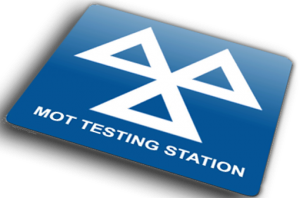MoT centres could be transformed into COVID-19 coronavirus test facilities to help meet Government’s aim to ramp-up its diagnosis of the virus, it has been claimed.
The founder and creator of VTS MoT compliance system MOT Juice, Barry Babister, is attempting to lead a push to have businesses – currently standing idle due to a six-month moratorium on MoTs – adapted to aid the national fight against the virus and has written to the DVSA’s head of MoT policy, Neil Barlow, in an attempt to gain support for his proposal.
Central to Babister’s idea is MoT test centres’ use of DVSA-approved secure data systems that, he claims, could be quickly be adapted to register and deliver COVID testing in the same way vehicle testing is conducted.
He said: “The Government, PHE and WHO need to think outside the box when it comes to COVID-19 testing and training – gearing-up as many new testers as possible.
“The reality of the situation is that through systems, technologies and locations, highly-skilled personnel and accessible locations MOT centres could viably help with COVID-19 testing.”
This week the Evening Express newspaper reported that the car park at IKEA’s Wembley store in North London had been adapted for use testing centre for frontline health workers, with Boots also now understood planning to set up frontline testing in their Nottingham and Surrey branches.
According to Babister’s own calculations, the 23,000 MoT centres and 60,000 testers currently left short of work due to the temporary moratorium on testing, could test up to 15 million people for COVID-19 per week if trained to carry out the necessary checks.
He said: “Current testing for COVID-19 is a swab sample from the nose and the back of the throat which can be administered by the individual themselves.
“Our understanding is that this may soon be replaced by an antigen test, which is a finger prick test.
“This testing, which can be seen as common place across the UK, is administered and conducted by trained volunteers.”
Part of the benefit of the UK’s nationwide roll-out of new COVID-19 coronavirus test facilities could be the ability to issue and renew ‘Immunity Passports’ which allowed virus-free individuals leave to return to work.
Quoted in The Guardian newspaper this week, Prof Peter Openshaw, a member of the government’s new and emerging respiratory virus threats advisory group, said people who have recovered from the virus and subsequently test positive for antibodies should no longer be infectious.
He said the worse-case scenario is that former patients would have only partial resistance for around three months.


















Login to comment
Comments
No comments have been made yet.